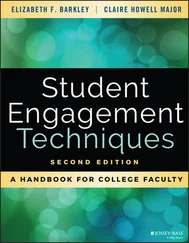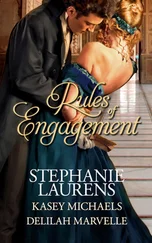Elizabeth Moon - Rules of Engagement
Здесь есть возможность читать онлайн «Elizabeth Moon - Rules of Engagement» весь текст электронной книги совершенно бесплатно (целиком полную версию без сокращений). В некоторых случаях можно слушать аудио, скачать через торрент в формате fb2 и присутствует краткое содержание. Жанр: Космическая фантастика, Боевая фантастика, на английском языке. Описание произведения, (предисловие) а так же отзывы посетителей доступны на портале библиотеки ЛибКат.
- Название:Rules of Engagement
- Автор:
- Жанр:
- Год:неизвестен
- ISBN:нет данных
- Рейтинг книги:4 / 5. Голосов: 1
-
Избранное:Добавить в избранное
- Отзывы:
-
Ваша оценка:
- 80
- 1
- 2
- 3
- 4
- 5
Rules of Engagement: краткое содержание, описание и аннотация
Предлагаем к чтению аннотацию, описание, краткое содержание или предисловие (зависит от того, что написал сам автор книги «Rules of Engagement»). Если вы не нашли необходимую информацию о книге — напишите в комментариях, мы постараемся отыскать её.
Rules of Engagement — читать онлайн бесплатно полную книгу (весь текст) целиком
Ниже представлен текст книги, разбитый по страницам. Система сохранения места последней прочитанной страницы, позволяет с удобством читать онлайн бесплатно книгу «Rules of Engagement», без необходимости каждый раз заново искать на чём Вы остановились. Поставьте закладку, и сможете в любой момент перейти на страницу, на которой закончили чтение.
Интервал:
Закладка:
Esmay wasn’t joyless, though.
Brun didn’t want to be fair. She wanted to be angry, righteously angry. Esmay had had no right to ream her out like that, no right to say she had no moral sense. Of course she had moral sense. She had rescued Lady Cecelia, for one thing. Even Esmay granted that. Aside from the requisite helling around that all the people in her set went through in adolescence, no one had ever accused her of being immoral.
She hunted through her past, finding one instance after another in which she had acted in ways she was sure Esmay would approve . . . not that it was any of her business. She had protected that little Ponsibar girl at school, the one who had arrived so scared and so easy to bully. She had told the truth about the incident in the biology lab, even though it had cost her a month’s detention and the friendship of Ottala Morreline. She had been polite to Great-Aunt Trema even when that formidable old lady had regaled guests at the Hunt Ball with tales of “little Bubbles” cavorting naked in the fountain as a toddler. She’d had to fight off entirely too many of her schoolmates’ brothers after that one, but she hadn’t turned against Aunt Trema. She and Raffa on the island . . . they had saved each others’ lives.
She could not, however, find something to plaster over all the accusations. Well . . . so what? Her standards were different; that didn’t mean she had none. Just as her inner voices began to talk about that, she decided she was thirsty, and turned into one of the bars that lined the street.
Diamond Sims, the sign read. Brun assumed it referred to fake diamonds, with an implication of world-weariness. Inside, the tables and booths were full of men and women who might as well all have been in uniform as in the mostly-drab shipsuits now the favorite casual wear for the military. The way they sat, their gestures . . . all revealed their profession. A few—less than a third—were in uniform. She didn’t see any of the students from the courses here—not that she’d know any but those in her own section, anyway. But she hadn’t wanted to see anyone she knew, anyone who would wonder where her bodyguards were. She wanted new faces, and a new start, and new proof that she was who she thought she was.
With that in mind, she edged past crowded tables to the one double seat empty toward the back. She sat down, and touched the order pad on the table—Stenner ale, one of her favorites—and put her credit cube in the debit slot. She glanced around. On the wall to her right were framed pictures of ships and people, and a display of little metal bits arranged in rows. A faded red banner hung up in the far corner; she could not make out the lettering from where she sat.
A waitress deposited her frosted mug and the bottle of ale, and gave her a saucy grin. “What ship, hon?”
Brun shook her head. “I’m on a course.” The waitress looked slightly surprised, but nodded and went on her way to deliver the rest of the tray to another table. Brun poured her ale. Behind her, she heard the dim confused sound of voices, and realized that there was another room—apparently private—adjoining the main room. And on her left, the long bar, the same matte black as the stuff covering ships’ hulls . . . could it possibly be a section of the same material? Above it, suspended from the high ceiling, were ship models. Brun recognized the odd angular shape of a minesweeper among the more ordinary ovoids of the warships. And behind the bar, the expected mirrors were framed with . . . her eyes widened. She knew enough about ordnance now to recognize that every frame had once been part of a functioning weapon. In a quick glance around the room, she saw more and more . . . it was as if the inside of the bar were made of the salvaged pieces of wrecks.
She felt the hair rising on the back of her neck, on her arms. It wasn’t real—it could not be real—no one would really . . . but her eye snagged on a display at the near end of the bar. Paradox . That name—she could not forget that name. And here was a plate—an ordinary dinner plate, its broad rim carrying the same dark-blue chain design she’d seen on all the dinnerware aboard Admiral Serrano’s ship, with the four lozenges that had surrounded the name Harrier . Here, the design inside the lozenges was slightly different . . . and the plate, sitting on a stand she was suddenly sure had been made of other debris, was brightly lit by a tiny spot that also illuminated the label, for those who were too far away to see the lozenges. Beside it was a stack of crockery.
Brun looked at the mug holding her ale, suddenly feeling almost sick. Had she been drinking from . . . ? No, it wasn’t Paradox . But now that its frosting had melted, she could see it was etched with some design. She squinted slightly. R.S.S. Balrog .
She had been drinking from dead men’s cups. She was sitting on . . . a seat made from salvaged bits . . . and what bits? Her elbows rested on a table made of . . . she wasn’t sure what, but she was now sure it was something that had been part of a living ship, and had been salvaged from a wreck. She looked for clues—and there, in a dull-finished plaque set into the tabletop next to the menu screen, she found it. R.S.S. Forge , enlisted bunk 351. A tiny button to one side caught her eye; she pressed it.
The menu screen blanked, replaced by a historical note: R.S.S. Forge had been lost thirty-two years before, in combat with a Benignity strike force; all hands had died. This fragment had been salved twenty-eight years ago, and identified by the stamped part number (still on the underside of the table); at the time of the ship’s death, enlisted bunk 351 had been assigned to Pivot Lester Green.
The table’s pedestal, the note went on, was formed of a piece of shielded conduit from the same ship; the two chairs were both from Forge , but one was from the enlisted mess and the other had been that of the senior weapons tech serving the aft starboard missile battery. The five people who had taken that position during Forge ’s final battle were all listed: Cpl. Dancy Alcorn, Sgt. Tarik Senit, Cpl. Lurs Ptin, Cpl. Barstow Bohannon, Sgt. Gareth Meharry.
Brun’s breath caught. Bad enough that all the names were listed, real people who had lived real lives and died a real death. But Meharry . . . she had known Methlin Meharry . . . was this a relative? A . . . parent? Aunt? Uncle?
Each name was linked, she realized, to some other information. She didn’t want it; she didn’t want those names to be any more real than they already were. But Meharry—she had to know. She activated the link.
Gareth Meharry had been twenty-six when he died; his family tree, spread across the screen, with Fleet members in blue, was more blue than gray. His parents (both now deceased, one in combat) had been Fleet; of his four sibs, two were active-duty Fleet, and two were married to Fleet members. Methlin Meharry was his sister . . . hard to think of that tough veteran as anyone’s sister. One of his nieces—her niece too—was named after her. So there would be another Methlin Meharry someday, and with both parents, and aunts and uncles, in Fleet, there was every chance that she would go into Fleet.
Sudden curiosity—and an escape from the weight of tragedy that was making it hard to concentrate—sent Brun back to the main menu. Sure enough, below the lists of drinks and food, she found data access choices. From this table, she could check on the publicly accessible records of anyone in Fleet.
Esmay—she wondered if there were other Suizas in Fleet. She entered the name and waited. Up on the screen came only one name, and Fleet’s choice of data for public consumption. Name . . . she had not known that Esmay’s full name was Esmay Annaluisa Susannah Suiza. Planet of origin: Altiplano. Family background . . . Brun caught her breath. In a few crisp sentences, she was informed that the Suiza family was one of the three most prominent on Altiplano . . . that Esmay’s father was one of the four senior military commanders . . . that her uncles were two of the others, and that the fourth was considered to be a Suiza choice. That the military influence on Altiplano’s government was “profound.”
Читать дальшеИнтервал:
Закладка:
Похожие книги на «Rules of Engagement»
Представляем Вашему вниманию похожие книги на «Rules of Engagement» списком для выбора. Мы отобрали схожую по названию и смыслу литературу в надежде предоставить читателям больше вариантов отыскать новые, интересные, ещё непрочитанные произведения.
Обсуждение, отзывы о книге «Rules of Engagement» и просто собственные мнения читателей. Оставьте ваши комментарии, напишите, что Вы думаете о произведении, его смысле или главных героях. Укажите что конкретно понравилось, а что нет, и почему Вы так считаете.












